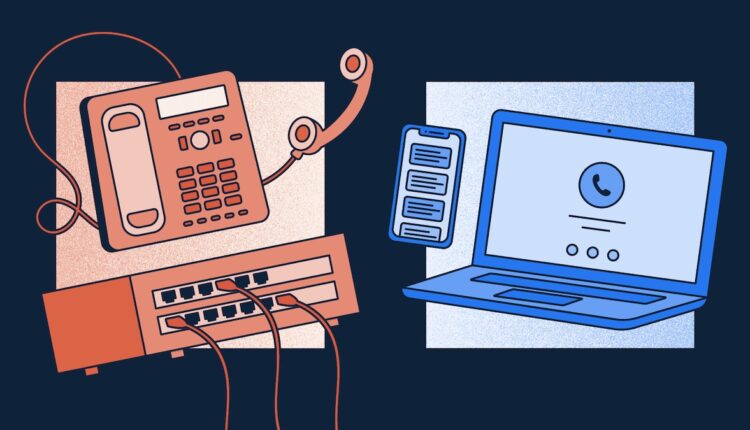If you’re a business owner, you’re always looking for ways to keep your overhead low. One big way to do that is by switching from traditional phone services to VoIP (Voice over Internet Protocol). VoIP has a lot of benefits, but some people are afraid it’s going to be too expensive. This article will answer the question “How do the costs of VoIP compare to traditional phone services?”
There are a few key startup costs that you’ll want to keep in mind when assessing the cost of your new VoIP system. The first is a fee to port your existing number over to the VoIP provider. This is a one-time charge, and it varies from provider to provider. Other startup costs include upgrading your internet connection to accommodate VoIP traffic and purchasing compatible equipment like softphones, headsets, and conference bridges. Finally, you’ll likely need to invest in training to ensure your team is comfortable using the VoIP system.
Once you’ve accounted for these initial expenses, the monthly fees associated with VoIP are much lower than those of a traditional telephone company. Most VoIP providers offer metered and unlimited calling packages, so you’ll likely be able to save on long-distance calls. Additionally, most VoIP providers charge a flat monthly rate per user, so there are no per-minute charges or per-call fees. You should also consider any extra features you may need for your business, such as call recording, a wide array of software integrations, auto-dialers, or collaboration tools.
You’ll also be able to cut down on costly office space when you switch to VoIP. The equipment is small and compact, so it can be easily stored in closets or in an open workspace. As a result, you can free up valuable square footage for important things, like ping pong tables and more conference rooms.
Another key savings is the fact that VoIP systems can scale as your business grows. With a landline system, you’ll need to buy more phone sets and additional wired lines. With a hosted VoIP solution, however, you can add users and lines for an affordable fee.
In addition, most VoIP systems offer a variety of other features that can improve productivity and efficiency. For example, you can host your VoIP system in secure data centers that can offer high reliability and performance. This means you won’t have to worry about costly downtime caused by power outages or other disasters.
Overall, studies across the board show that businesses save money when they switch to a VoIP phone system. By slashing your phone related costs, you can put more money into the things that matter most to your business: employees and customers. To find out more about the potential savings you can realize by switching to VoIP, contact a reputable provider today. They’ll be able to provide you with an estimate for your specific business needs. This will help you decide if this modern technology is the right fit for your organization.


